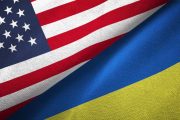On July 12 The Nation published a lengthy article by Jeremy Scahill exposing a secret CIA prison in Mogadishu, Somalia. Scahill’s report was based on an in-person investigation of the allegations, undertaken at great personal risk.
Scahill found that the CIA is using “a secret prison buried in the basement of Somalia’s National Security Agency (NSA) headquarters, where prisoners suspected of being [Somali militant group Al] Shabab members or of having links to the group are held.” The prison houses not just suspects captured within Somalia but also those picked up in Kenya (and possibly other countries) and rendered to Somalia for interrogation.
The conditions inside the prison are deplorable, says Scahill:
According to former detainees, the underground prison, which is staffed by Somali guards, consists of a long corridor lined with filthy small cells infested with bedbugs and mosquitoes…. The former prisoners described the cells as windowless and the air thick, moist and disgusting. Prisoners, they said, are not allowed outside. Many have developed rashes and scratch themselves incessantly. Some have been detained for a year or more. According to one former prisoner, inmates who had been there for long periods would pace around constantly, while others leaned against walls rocking.
“While the underground prison is officially run by the Somali NSA,” Scahill writes, “US intelligence personnel pay the salaries of intelligence agents and also directly interrogate prisoners.” There are two reasons for this. First, it gives the U.S. government plausible deniability concerning the prison; it’s run by the Somalis, and when U.S. agents do get involved in interrogations, it’s “rare” and “always jointly with Somali agents,” as one U.S. official told Scahill. (In fact, Scahill points out, U.S. agents “directly interrogate prisoners” and “are [t]here full time.”) Second, it offers the Americans a way around the nominal government of Somalia, which they do not trust. “Instead,” Scahill explains, “the United States has Somali intelligence agents on its payroll. Somali sources with knowledge of the program described the agents as lining up to receive $200 monthly cash payments from Americans.”
The prison appears to be part and parcel of U.S. policy with regard to Somalia. Writes Scahill: “On the one hand, the CIA is training, paying and at times directing Somali intelligence agents who are not firmly under the control of the Somali government, while [the U.S. Joint Special Operations Command] conducts unilateral strikes without the prior knowledge of the government; on the other, the Pentagon is increasing its support for and arming of the counterterrorism operations of non-Somali African military forces.” As with most U.S. counterterrorism policy, its efficacy is doubtful. A “senior Somali intelligence official” told Scahill that “the CIA-led program in Mogadishu has brought few tangible gains” and “conceded that neither US nor Somali forces have been able to conduct a single successful targeted mission in the Shabab’s areas in the capital.”
In short, Obama’s foreign policy, like his domestic policy, does not differ significantly from his predecessor’s. As Scahill put it in an interview with Salon’s Glenn Greenwald: “they [the Obama administration] continue even the most controversial Bush terrorism policies by having some other government technically operate it so they can keep their fingerprints off it.” Greenwald points to other examples of Obama’s clandestine continuation of George W. Bush’s policies:
Indeed, the administration has even resorted to this playbook by using “torture by proxy” — as we saw when the Kuwait government, with at least the complicity if not direction of the U.S., detained and beat American teenager Gulet Mohamed during interrogation sessions. Just yesterday, a federal judge “reacted skeptically” to the Obama DOJ’s demands for dismissal of a lawsuit (on secrecy grounds) brought by an American citizen imprisoned for four months in Africa, where “U.S. officials threatened him with torture, forced disappearance and other serious harm unless he confessed to ties with al-Qaida in Somalia.”
Despite all this, the mainstream news media have remained curiously uninterested in reporting on the stunning disconnect between Obama’s stated policies and his actual policies — though one notable exception is Scahill‘s appearance on MSNBC’s Morning Joe.
But in general, when the media have deigned to cover the story, it has been under the guise of debunking it.
CNN’s Barbara Starr, in Greenwald’s words, “filed a truly incredible report” that managed to (a) sound like “a headline-making scoop for CNN” in which a CIA official revealed the existence of the Mogadishu prison to Starr and (b) repeat the government’s talking points about the prison’s being under Somali control and the CIA’s participation in interrogations being a “very small,” “support” role. More incredibly still, she managed to do this without once mentioning Scahill’s report (though she was forced to add “Parts of this story initially appeared in the magazine The Nation on Tuesday” after the magazine complained to CNN).
Luis Martinez, writing for ABC News, also took the government’s side against Scahill. According to Greenwald, Martinez “doesn’t pretend to do anything other than serve as obedient stenographer to the CIA by uncritically writing down and passing on the statements of an anonymous Government official in denying Scahill’s report.” At the same time, says Greenwald, Martinez actually went Starr one better (or worse) because his report
justifies the CIA program by quoting the anonymous CIA official as describing the program as “the logical and prudent thing to do.” ABC then helpfully adds that “senior U.S. officials have expressed concern that al Shabab may be trying to expand its terror operations beyond Somalia” and that “U.S. government officials worry that those lawless regions might become a safe haven for al Shabab and other terror groups.” There is no discussion — zero — of the illegal aspects of maintaining a secret prison, the dangers of allowing unchecked renditions of prisoners to Somalia hidden from international human rights monitoring, or the likely violations of Obama’s highly-touted Executive Orders.
Because of this attitude on the part of the establishment media, Scahill has largely been relegated to appearing in alternative media which, while certainly important, simply do not have the reach or the respect that the major news outlets do. Scahill performed real, on-the-ground research; Starr and Martinez regurgitated CIA talking points. Yet Scahill is ignored and derided, while Starr and Martinez are treated as serious journalists. Observes Greenwald: “That’s because ‘Serious Journalism’ in Washington means writing down what government officials tell you to say, and granting them anonymity to ensure they have no accountability.”




